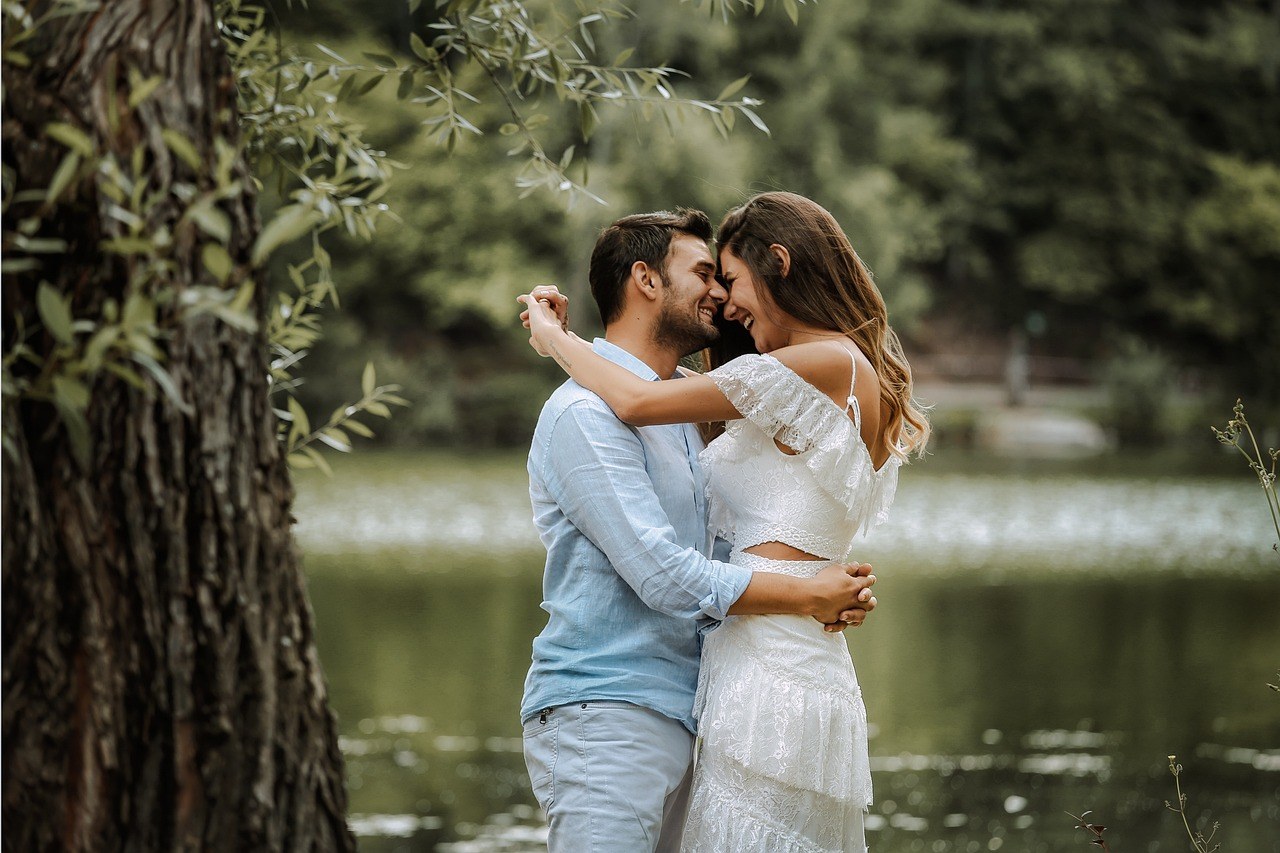There is a very particular ache that comes from caring deeply for someone who never became your partner – the shape of a story that almost started and then slipped through your fingers. That ache has a name many people recognize: unrequited love. It can feel every bit as raw as a breakup because you’re grieving both a person and an imagined future. If you’re here, you’re likely tired of circling the same thoughts, replaying conversations, and wondering why moving on feels so hard. This guide offers a compassionate, practical path forward so you can release what never quite was and make room for a life that really fits.
How long will this hurt?
There is no universal timetable for mending a bruised heart. For some, the sting fades after a few weeks; for others, it lingers for months – occasionally longer. What matters most is not the calendar but the way you care for yourself along the way. Treat this like recovery after any emotional rupture. The more intentionally you process unrequited love – naming feelings, setting boundaries, and building new routines – the sooner your nervous system learns that safety and hope still exist.
Why it can feel tougher than a breakup
When you never dated, you never collected the ordinary, grounding details that come with real intimacy. You did not witness their messy habits or incompatible rhythms. Without those reality checks, the mind polishes an ideal – a highlight reel that leaves out the bloopers. That makes the pull of unrequited love strong: you’re not only missing a person, you’re missing a perfected version of them and the dream you built around it. A dream has no contradictions, no bad days, no mismatched priorities – which is exactly why it can be so hard to release.

A step-by-step plan to move on
Give sorrow a doorway. For a short, defined window, let yourself feel everything. Name the disappointment out loud, cry if you need to, and acknowledge the loss. You are mourning unrequited love – and mourning is part of healing, not a failure of strength.
Let tears do their job. Crying is a natural pressure valve. Put on music that matches your mood, keep tissues nearby, and let your body help you process. Emotions that move have somewhere to go; unrequited love softens when the body is allowed to release.
Set a gentle stop point for wallowing. After that initial window, mark a day to shift gears. You’re not forcing cheerfulness – you’re agreeing to diversify your attention. Create a small daily plan so unrequited love is not the only thing on your agenda.

Own your recovery. Friends can comfort you, but they can’t do your push-ups. Decide that your healing is your project. Choose one thing each morning that nudges you forward – a walk, a journal page, a text to a supportive person – so unrequited love doesn’t set your schedule.
Go no-contact for a season. Mute, unfollow, or temporarily block if needed. Think of it like removing sugar while you recalibrate your palate. Each ping pulls you back into craving. A quiet phone gives your mind room to detach from unrequited love and regain equilibrium.
Stop the slow bleed of social media. Digital detective work is self-sabotage. Scrolling through their photos or new dates is like pressing a bruise – it only keeps the ache awake. Protect your attention; unrequited love fades when you stop feeding it new images.

Question the highlight reel in your head. Memory is an editor, not a camera. Ask yourself: am I remembering a complete scene or a cropped version? Write down moments that felt awkward or unclear, too – balancing the story helps unrequited love lose its halo.
Retire the “if only” storyline. The mind loves counterfactuals – if only I’d said this, worn that, arrived earlier, waited longer. But chemistry, timing, and preference aren’t solved by perfect lines. Recognizing this loosens the grip of unrequited love.
Differentiate the person from the fantasy. List what you know versus what you imagined. The “know” column is often short; the “imagine” column is where most of the sparkle lives. Naming the difference gently shrinks unrequited love back to human size.
Expect turbulence – normalize it. There will be mornings that feel heavy and afternoons that surprise you with lightness. Healing rarely moves in a straight line. Fluctuation is not failure; it’s your brain updating. Ride the waves and keep your oars in the water so unrequited love doesn’t become your identity.
Fill the open hours on purpose. The time you once spent texting, hoping, or waiting needs a new home. Sign up for a class, join a pickup game, reorganize a room, volunteer. Structure creates momentum; momentum loosens unrequited love.
Create distance rituals. Box up reminders, return borrowed items, change a ringtone, take a different route to avoid their street. Rituals mark transitions – they signal to your brain that a chapter is closing and unrequited love can settle down.
Journal for clarity, not performance. Use pen and paper to spill the unfiltered version of your thoughts. Try prompts like “What did I need that I hoped they’d give?” or “What is hard to admit?” Writing converts swirl into sentences, and sentences into insight – a powerful counterweight to unrequited love.
Rebuild esteem with micro-wins. Confidence often hitchhiked on their attention. Bring it home by stacking small victories: cook something new, finish a book, meet a deadline early. Ten little wins can outmuscle one big doubt – and unrequited love loses its central seat.
Move your body daily. You don’t need a punishing workout – a brisk walk, a stretch session, or dancing in your kitchen is enough. Motion metabolizes stress hormones and invites steadier moods, which makes unrequited love easier to navigate.
Tell the truth to someone safe. Choose a friend or relative who listens more than they lecture. Share your fears, not just the facts. Being heard reduces shame, and with less shame, unrequited love becomes a challenge you’re handling – not a verdict on your worth.
Let laughter do what logic can’t. Watch a silly show, spend time with the friend who always cracks you up, or find humor in the tiny absurdities of the day. Laughter widens your perspective; in a wider frame, unrequited love looks smaller.
Honor their choice – and yours. Consent includes the right to decline. Respecting their no protects everyone’s dignity. Your matching choice is to stop campaigning for what isn’t offered. That self-respect is the quiet antidote to unrequited love.
Retire the excuses. “Bad timing,” “wrong place,” “maybe later” – these phrases keep you waiting in an empty station. Accepting reality is not cynicism; it’s a kindness that frees you from unrequited love’s holding pattern.
Ask why this person mattered so much. List the qualities that hooked you – warmth, wit, ambition, comfort, novelty. Then ask which of those qualities you’re craving more broadly. Often, unrequited love spotlights needs that are ready to be met in other, better places.
Become the partner you seek. If you’re drawn to people who are playful, reliable, curious, or grounded, practice those capacities yourself. Like attracts like. As you grow, unrequited love gives way to connection that can actually meet you.
Build a “moving on” soundtrack. Music can cradle grief and lift energy. Curate songs for three moods – release, restore, and rise. When the urge to text flares, press play instead. Over time, your brain pairs those tracks with relief from unrequited love.
Choose a dating posture that fits now. You might take a brief sabbatical to recalibrate, or dip a toe back in with low-stakes chats. There’s no universal rule – there’s only what keeps your dignity intact while unrequited love recedes.
Ask for professional backup if you’re stuck. If weeks turn into months and your sleep, appetite, or daily functioning shrink, consider talking with a counselor. Outside perspective can spot loops you can’t see – and help unrequited love loosen its loops.
Notice when attention becomes fixation. If you’re monitoring their life obsessively or fantasizing constantly, treat that as a red flag. Obsession is a stress signal, not a love story. Respond with boundaries and support so unrequited love doesn’t harden into a habit.
Create a symbolic fresh start. Rearrange furniture, repaint a wall, or buy fresh sheets. Tangible change cues your nervous system that you are moving. Each small shift is a promise to yourself that life is opening beyond unrequited love.
Understanding the emotional logic
Part of what complicates this process is the brain’s bias toward completion. Stories want endings – and “almost” is an itch your mind keeps trying to scratch. That’s why you revisit conversations, analyze word choice, and simulate different outcomes. Naming this bias is powerful. When you catch yourself polishing the past, say, “My brain is seeking a tidy ending.” Then redirect to an action you can take in the present – something that serves you rather than the loop of unrequited love.
Another invisible driver is scarcity. If you secretly believe that deep connection is rare, losing even a hypothetical chance can feel catastrophic. Practice noticing abundance where it already exists: dependable friends, meaningful work, small daily joys. Scarcity shrinks when you stock the shelves of your life with what nourishes you, and unrequited love stops masquerading as your only feast.
Common reasons you still feel stuck
Idealization. You’re comparing new people to a perfected image. Nobody wins against a dream. Replace comparison with curiosity – it’s how unrequited love loosens its standard of impossible.
External reinforcement. Well-meaning people say, “You two would be perfect together.” Compliments can keep the fantasy alive. Thank them, then steer the conversation back to reality so unrequited love doesn’t get applause.
Loneliness padding. Sometimes the crush fills empty spaces – a placeholder for intimacy. Strengthen your web of connection elsewhere and the placeholder dissolves; unrequited love was doing a job that community can do better.
Energy sunk costs. You invested time and hope, so walking away feels like waste. Reframe: you were practicing your capacity to care. That practice will serve the right relationship, while unrequited love remains information, not a life sentence.
Overefforting without traction. You’ve tried many strategies but still feel raw. This can signal deeper stories about worth or safety. Gentle, skilled support can help you update those stories so unrequited love isn’t carrying old burdens.
What closure can look like when you never dated
Closure isn’t a speech, a final text, or a dramatic farewell – it’s the accumulation of small, self-respecting choices. You stop checking their feed. You choose a different coffee shop. You decline the invitation that keeps your hopes on life support. You pour energy into rituals, routines, and relationships that say “I matter” without their participation. In other words, you build a life big enough that unrequited love has nowhere left to echo.
Reframing the story you tell yourself
Try a simple narrative shift. Instead of “I wasn’t chosen,” try “We didn’t choose each other.” That small change restores agency. Or swap “I lost my chance” for “I learned about my capacity.” Language is a tool – and when you grip the right tool, unrequited love becomes a chapter that taught you something vital: how to stay loyal to yourself.
Signals that you’re turning the corner
Progress often arrives quietly. You notice a whole morning without thinking about them. You laugh at a joke without a shadow of comparison. You catch yourself planning a weekend around your interests instead of their schedule. The mind still flickers back now and then – that’s normal – but the intensity is dialed down. These are the ordinary miracles of healing: proof that unrequited love is yielding to the steadier beat of your own life.
Your next right moves
Pick three actions from the steps above and commit to them for the next two weeks. Keep them small enough to succeed on tough days – a ten-minute walk, one page of journaling, a daily social media break, a check-in call. Put them on your calendar like appointments with yourself. Consistency beats intensity. Each day you follow through, you cast a vote for the person you’re becoming – someone who honors their feelings, protects their peace, and knows that unrequited love is not the end of the story.
You don’t need a grand finale to heal – you need a series of humane choices made in your own favor. Keep choosing. The world you wanted to share with them can still be built, brick by brick, by you. And when the right person arrives, they’ll meet you in that world – not the dream of almost, but the reality you crafted with care.